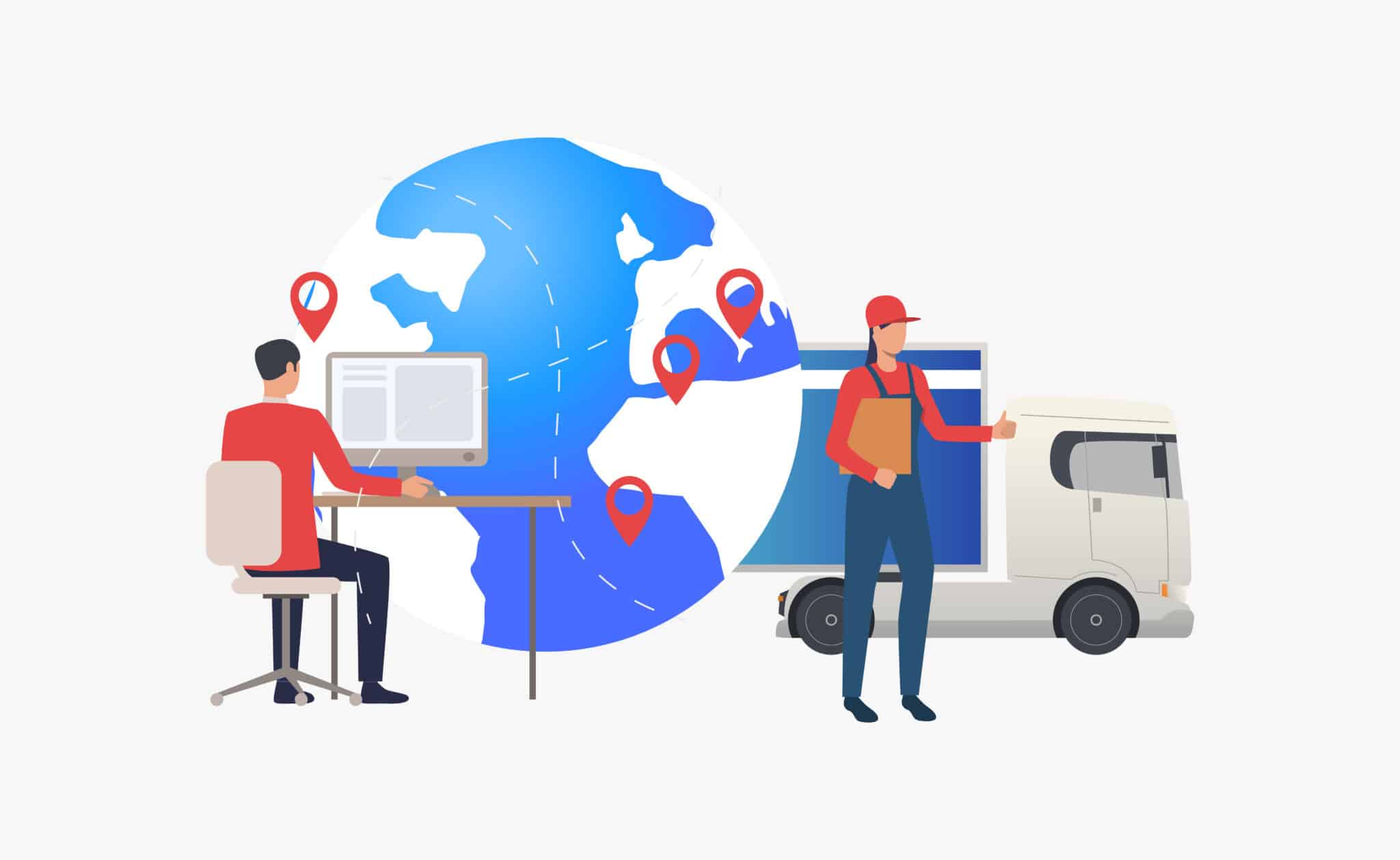A popular strategy for modern companies today is the use of Third Party logistics (3PL) services like those provided by Interlane Logistics.
Some of the external logistics providers who offer their services include warehouse provision, shipment, order fulfillment, and supply chain management among others. In today’s global business scenario where companies no longer work within their own operational limits, the advantages of third-party logistics is a determining factor.
This document will examine and discuss the different sides and advantages of third-party logistics as an organization for businesses. We are discussing all aspects that range from cost efficiency and providing better services for customers up to the reasons why some companies think that this may be dangerous for them, i.e. loss of control and security concerns that they may face as a result.
That being said, let us begin this journey of looking at the advantages of third-party logistics.
Characteristics of Third-party Logistics
However, before examining the pros and cons of third party logistics, its meaning should be explained. Third-party logistics involves outsourcing various supply chain management functions to external providers. They may include transportation, storage solution, delivery, and inventory control.
In other words, a company that decides to use 3PL services entrusts some or all of its logistics operations to a partner company. This allows the company to focus on its core or most important business activities while leaving the logistics tasks to experts which is the third party logistics in this case.
The services of third-party logistics include:
- Warehouse provision: A 3PL provider can assist with providing warehouse space for inventory storage, as well as managing and organizing the physical space.
- Shipment: 3PL providers have expertise in handling shipments, whether by air, sea, or land. They are in charge of coordinating or organizing and tracking the transportation of goods from one location to another.
- Order fulfillment: This involves picking, packing, and shipping products to customers in a timely and efficient manner.
- Inventory management: 3PL providers can assist with managing inventory levels, implementing just-in-time practices, and ensuring stock availability for prompt delivery.
Now that we have a better understanding of what third-party logistics entails let’s discuss its
Advantages of Third-party Logistics
There are several advantages of utilizing third-party logistics services, including:
1. Cost Savings
One of the most significant advantages of utilizing third-party logistics (3PL) services is the potential for considerable cost savings. These savings are primarily made possible thanks to the concept of economies of scale. A 3PL provider, by virtue of handling logistics for numerous clients, can leverage its scale to negotiate better rates for shipping, warehousing, and other logistics-related tasks.
For example, a single business might find it expensive to maintain a full-scale warehousing operation when its need for such services fluctuates throughout the year. However, a 3PL provider, serving multiple businesses, can maintain warehousing operations at scale, spreading the costs across many clients and thus offering each of them a more economical solution.
Moreover, the use of shared resources further reinforces these cost savings. Shared resources in this context refer to the fact that the same storage facilities, vehicles (in the case of less than truckload services), and personnel are used to serve multiple clients. Such an approach saves a lot of money because each business does not have to maintain its own logistics resource which SMEs may not afford.
The indirect cost saving is also beyond those arising from the sharing of resources and economies of scale. By outsourcing logistics to a 3PL provider, a company can focus its resources on its core competencies, potentially improving efficiency and profitability in those areas.
2. Focus on Core Competencies
Outsourcing logistics to a 3PL provider allows a company to concentrate on its core competencies, leading to increased productivity and efficiency in these areas. These are often complex and take a lot of time, for instance, logistics. Given these activities to a 3PL provider for a company will be involved into activities that lead to organizational development goals.
Additionally, companies that offer third-party logistics (3PL) services have become really good at handling logistics tasks. They can deal with things like following logistics rules there are logistic compliance rules), transporting goods, and storing products. Some of the people working for them have special knowledge and skills (specially trained) that make things run smoother, reduce mistakes, and make customers happier.
Hence, a concentration in their strengths and working with 3PL partners makes it possible for companies to be more effective and ahead of competitors.
3. Flexibility and Scalability
Third-party logistics providers offer flexibility and scalability, two very important aspects that make them invaluable to businesses, especially small businesses and E-commerce platforms. These features allow companies to scale up or down their operations based on market demands, ensuring that they can adapt swiftly to market changes or seasonal fluctuations.
For example, a toy company can experience an increase in demand during the festive season especially the Christmas, and this will require an increase in production, storage, and distribution capacity. A 3PL provider can readily accommodate such changes, scaling up resources to ensure that the company can fulfill its orders in a timely manner.
Similarly, a clothing retailer might witness fluctuations in demand attributable to changing seasons. During summer, the demand for winter clothes typically plummets, resulting in lower storage and distribution requirements. The 3PL provider can then scale down resources, helping the retailer save on logistics costs.
This ability to increase or reduce resources otherwise known as scalability and flexibility offered by 3PL providers allows businesses to respond effectively to market dynamics and seasonal variations, thus ensuring operational efficiency and customer satisfaction.
4. Technology and Innovation
Third-party logistics providers leverage cutting-edge technology and innovation to streamline and optimize logistics operations. This not only enhances operational efficiency but also gives businesses a competitive edge.
Access to Advanced Technologies: 3PL providers have the resources and expertise to invest in the latest logistics technology, from advanced warehouse management systems to real-time tracking software. This enables businesses to benefit from state-of-the-art technology without incurring the high costs associated with:
- acquiring,
- implementing,
- and maintaining such systems.
Advanced technologies used by logistics companies include:
- Warehouse Management Systems (WMS): These systems streamline warehouse operations, enhancing inventory accuracy, optimizing order fulfillment, and reducing order cycle times.
- Transportation Management Systems (TMS): TMS facilitates efficient route planning (some routes are more economical than the other), freight consolidation, and carrier selection, thus reducing transportation costs and improving delivery performance.
- Real-Time Tracking Systems: These systems provide real-time visibility (you can know where your goods are per time) into the status of shipments, enabling businesses to monitor delivery progress and promptly respond to any unforeseen issues.
Continuous Improvement: 3PL providers are continuously seeking ways to improve their services and operations. They devote resources towards R&D, periodically re-train personnel, and follow an approach of evaluation and learning. The culture of unrelenting enhancement makes partners of 3pl providers enjoy innovations in logistic operations as well as business benefits in logistics in the long-term way.
Essentially, advanced technologies and focus on constant improvement are just some ways in which 3PL providers can help businesses become more efficient, improve satisfaction for customers, and stay ahead of the competition.
5. Improved Customer Service
Another significant beneficial byproduct of partnering with a third-party logistics provider is the noticeable improvement in customer service. The advanced technologies implemented by these providers not only streamline operations but also contribute to enhanced responsiveness (timely response to customers which leads to improved customer experience).
With full truckload services, businesses can offer more accurate and faster delivery times to their customers. The faster delivery times contribute to improved customer service. Efficient routing afforded by Transportation Management Systems (TMS) and seamless warehouse operations facilitated by Warehouse Management Systems (WMS) significantly reduce order cycle times.
Order accuracy is another area where 3PLs shine. Enhanced inventory precision guaranteed by WMS reduces the likelihood of order errors, ensuring customers receive exactly what they ordered.
Better order fulfillment or order process is one of the results of operations’ efficacy. It entails prompt and correct handling plus prompt delivery. Such level of commitment to timely and accurate service delivery boosts customer satisfaction leading to a stronghold on reputation and competitive advantage in the industry.
Thus, businesses that partner with 3PL providers enjoy not only operational efficiencies but also a significant boost in the quality of customer service.
6. Global Reach and Market Expansion
Businesses can exploit this opportunity by working with a third-party logistic provider (3PL). These suppliers have vast understanding of the international shipment and customs rules so make it possible for cargo to be moved timely and properly observing trade regulations across the world.
This expertise greatly diminishes the possibility of custom related problems hence ensures quick as well as easy flow of cargo in time.
Additionally, teaming up with a 3PL gives businesses the opportunity to make use of extensive international connections. The network comprises top players and transport companies in several regions globally, enabling companies to use existing connections, and improve their supply chain in different countries.
Also noteworthy is the fact that 3PLs help companies open up in new markets creating room for business expansion. Logistics complications are tackled down and business improves since company’s concentrates on its core competency hence growth is achieved. These benefits help in enhancing access of a business into the global marketplace through the use of 3PLs.
Explain the subheading above, including International Shipping and Customs Expertise, Access to a Global Network and industry leaders, entry into New Markets ensure to link this as an advantage of third party logistics to businesses.
7. Enhanced Risk Management
The other advantage accrued by working with this firm relates with improved risk management. Such providers, being highly experienced and informed, are competent enough in the matters of the natural catastrophes, the geopolitics, or unexpected disruptors within the supplier’s chain.
It is also imperative to mention that they enjoy unmatched technology in terms of tracking shipments as well as inventory level management, both of which are crucial in minimizing risk occurrences.
- Insurance and Compliance: Risk management is often ingrained in third-party logistics providers. They are usually insured and familiar with compliance, thus shielding businesses from possible exposure to risks.
- Regulatory Compliance: Businesses may find it difficult to navigate the intricate terrain of logistics regulations. The third party logistics (3PL) specialize in ensuring compliance with both international and local laws thus avert legal problems and related fines.
In this way, working with a third party logistics provider enables enterprises to successfully overcome all unexpected difficulties for further effective activities of their supply chains and hence the business in general.
8. Efficient Reverse Logistics
Reverse logistics encompasses all the actions that are involved in moving products from their final destination back to the manufacturer or supplier, for reasons such as returns, repairs, recycling, or disposal.
- Reduced Costs: Reverse logistics can be a complex and expensive process for businesses. However, working with a third-party logistics provider can greatly reduce these costs by streamlining processes and optimizing transportation.
- Improved Customer Experience: Efficient reverse logistics ensures customer satisfaction by providing timely and hassle-free returns or exchanges, thus improving overall customer experience and building brand loyalty.
- Sustainability: With growing concern for the environment, reverse logistics can help businesses reduce their carbon footprint by ensuring responsible disposal and recycling of products.
Moreover, it goes without saying that companies realize considerable cost savings across their supply chain management and this increasingly improves customer satisfaction while being sustainable. Through allying themselves with a reputed logistics solution provider, businesses can streamline the reverse logistics and gain essential competencies of taking care of the same.
By considering these additional advantages, businesses can make well-informed decisions when exploring the potential benefits of third-party logistics. Each of these advantages contributes to a more robust and adaptive logistics strategy, allowing companies to thrive in today’s dynamic and competitive business environment.
Mitigating Risks and Maximizing Benefits
To mitigate the potential risks, it is important for businesses to thoroughly research and select reliable third-party logistics providers. The following strategies can also help in maximizing the benefits of using third-party logistics:
- Clear communication: Maintaining clear and open lines of communication with the third-party provider can help address any issues or concerns in a timely manner.
- Regular monitoring: Businesses should regularly monitor their reverse logistics processes to ensure they are meeting their goals and objectives, and to identify any areas for improvement.
- Contract agreements: Detailed contract agreements can help protect businesses in case of issues with the third-party logistics provider, and should include performance metrics and service level agreements.
- Collaboration: Collaborating with the third-party provider can lead to better efficiency and customization options. Businesses should work together with their providers to develop strategies that benefit both parties, and to put the mind of customers and users alike at rest.
- Continual evaluation: It is important for businesses to continually evaluate their reverse logistics processes and the performance of their third-party providers, making necessary adjustments as needed.
With these strategies in place, businesses can mitigate risks and reap the benefits of using third-party logistics.
Wrapping Up
Businesses can benefit from outsourced reverse logistics by improving customer satisfaction, reducing costs, and increasing efficiency. It also enables organizations to concentrate on their strengths and outsource logistics services to specialists.
Third-party logistics has many advantages. It is essential to involve third party suppliers in the optimization of reverse logistics processes.
Finally, constant assessment of a process or performance of its supplier will be needed so that business organizations can maximize on every outsourcing effort they make.















